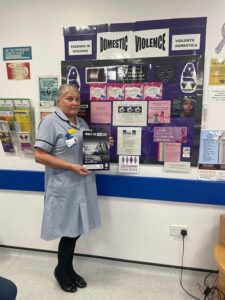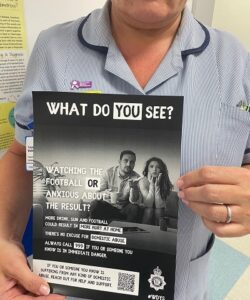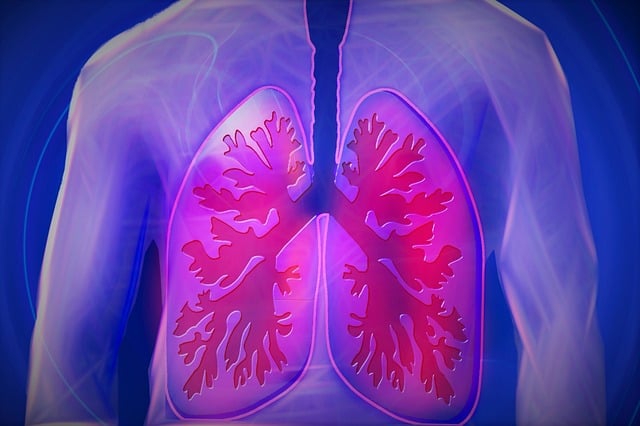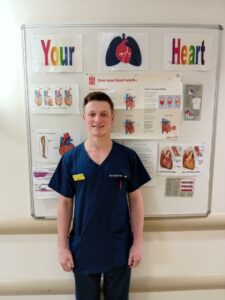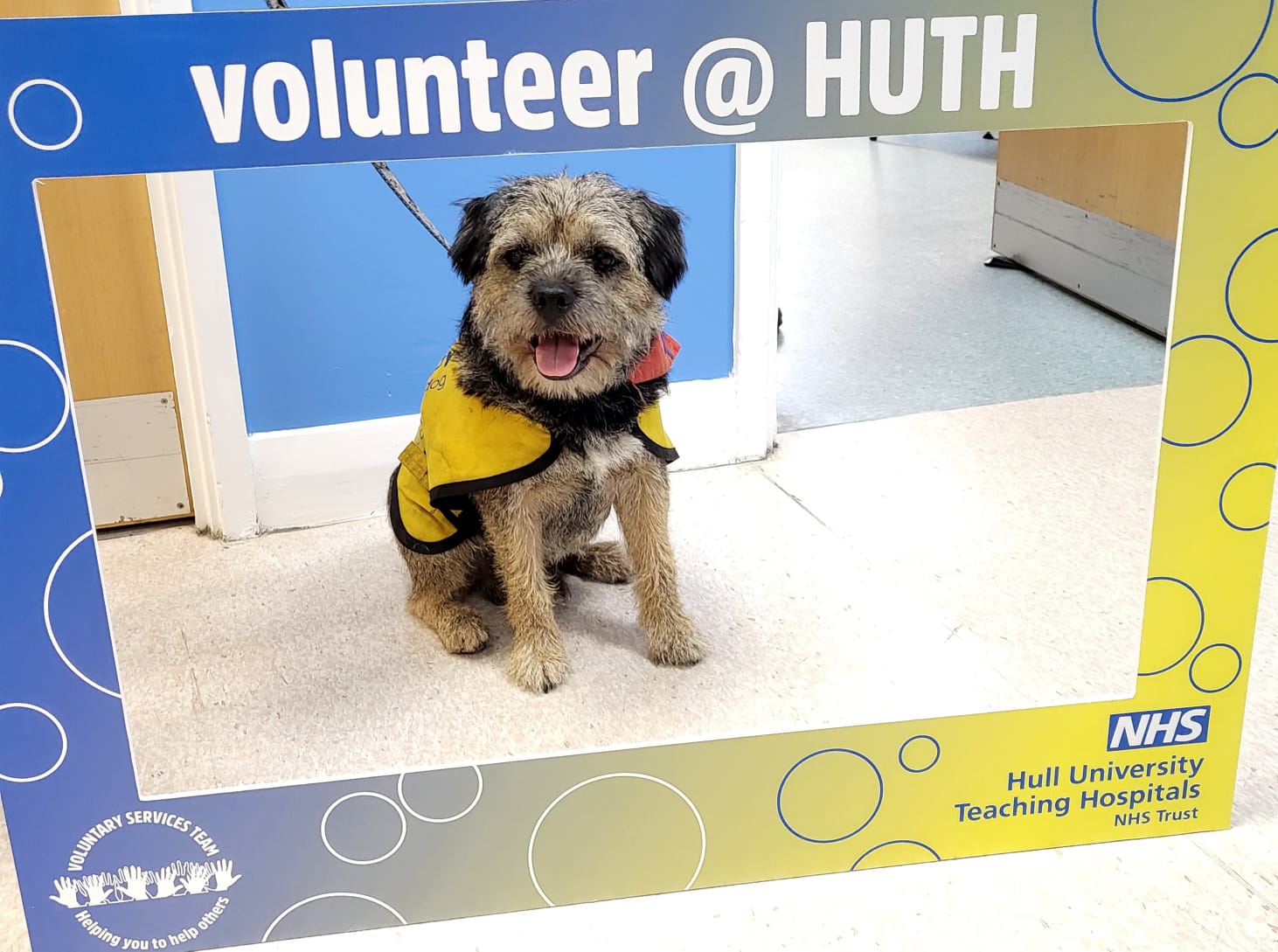A new video game has been designed to help recruit the next generation of pharmacists to work in our hospitals.
Players have to do their best to look after four virtual patients, getting them the medication that they have been prescribed by the virtual doctor, so that they can go home – and it’s all against the clock, just like a real hospital!
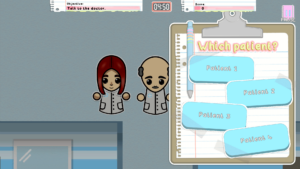
A screenshot from Pharmacy Rush
The idea was the brainchild of Rachel Craven, Pharmacy Business, Service and Performance Manager at Northern Lincolnshire and Goole NHS Foundation Trust, who wanted to find a way of inspiring more people to join the team.
After speaking to The Grimsby Institute, students on the BA Game Design course set about making Rachel’s concept a reality. They worked for free over the course of 12 months and came up with the finished product – Pharmacy Rush.
Not only is it great fun to play (not to mention strangely addictive) but it also helps to show potential future pharmacists how the team operates within a hospital at ward level, alongside other colleagues providing direct patient care. It can also be played on a computer, mobile phone or tablet, making it ideal to take out to careers events at local schools and colleges.
Rachel said: “Pharmacists are in short supply, which appears to be a national issue, compounded by our geographical location. As a hospital pharmacy service, we’re focusing on our future supply pipeline and growing local talent. We regularly attend local careers events to talk about our hospital pharmacy careers, as we have a variety of different roles which are quite different to how a community pharmacy operates. Engaging students at careers events can be challenging when competing against other career stands.
“I was trying to think of ways we could promote a career in pharmacy, which were outside the box, and came up with the idea of a video game. I approached The Grimsby Institute and they were delighted to help us with this. The game they’ve designed is absolutely fantastic and I can’t wait for people to play it.”
Simon Priestley, Chief Pharmacist at NLaG, said: “What these students have created has exceeded our expectations. It’s been a really positive collaboration. Hospital pharmacy is not always understood and this will help us promote a range of careers. We do a lot of work going into schools and attending careers fairs, and this will help us attract more people for these roles.”
Fin Rohrbasser, a student on the year 2 BA Game Design course, worked as the project manager on the game.
He said: “We had to arrange everything into specific roles, so I ended up being project manager. We created a plan and assigned tasks to the team. I am very happy with the finished product, as I’ve never been involved in something like this before.”
Harmony Wolfe, a student on the year 3 BA Game Design course, worked as the art director on the game.
She said: “We all had input from the beginning. I was heavily influenced by the artwork for a video game called Overcooked and KENJI, which sells products inspired by Asian-inspired culture. I have never worked on something on this scale before. I’m going to study a master’s degree in indie game development, so this is great experience.”
Maxwell Stringer, programme leader for the course, said: “Rachel approached me regarding making an education game related to pharmacy, in the hope of helping recruitment to that sector within the NHS. Seeing an opportunity here for our university students to create a live industry brief and have a real impact within the community and NHS, this was a no brainer, and so we accepted the challenge and brief.
“Over the space of a year, my students tirelessly developed Pharmacy Rush, while also still working on achieving their degree. This was a huge collaborative effort for the students involved, and we have now created something that they can all be very proud of.”
The game can be used by both NLaG and Hull University Teaching Hospitals NHS Trust. You can play it via this link.

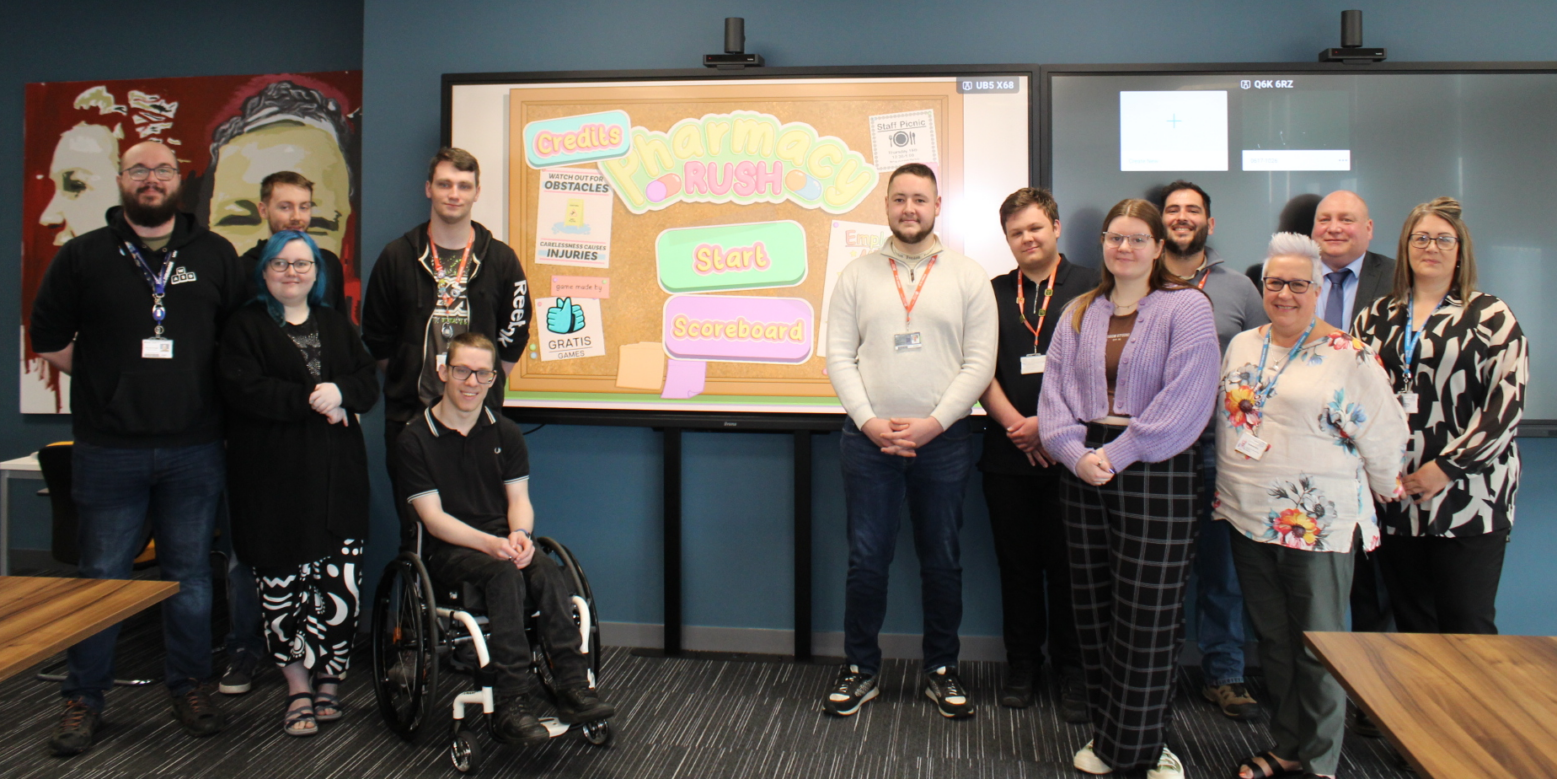
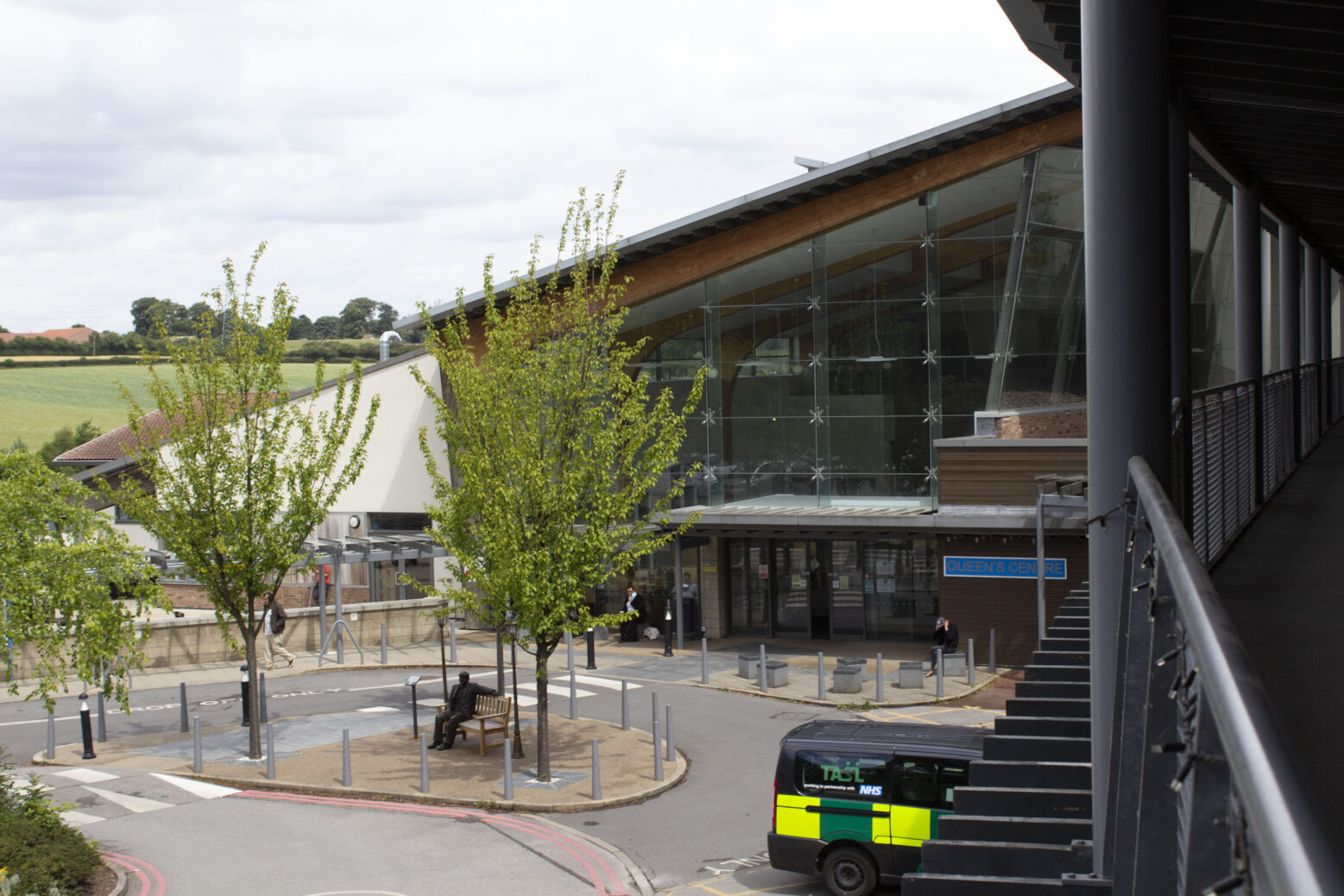
 Ward Manager Jenni Downs said: “When we asked patients for their feedback, they told us they faced such a long stay in hospital when they came in for stem cell transplant and had to be transferred for a chest line insertion, resulting in extra overnight stays.
Ward Manager Jenni Downs said: “When we asked patients for their feedback, they told us they faced such a long stay in hospital when they came in for stem cell transplant and had to be transferred for a chest line insertion, resulting in extra overnight stays.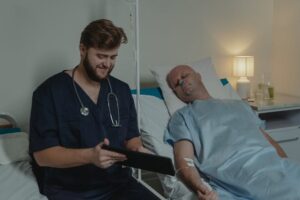 Now, however, those suitable for Power PICC Solo only have to visit the ward at the Queen’s Centre as an outpatient first before undergoing stem cell transplant two days later. The line can then be removed by senior nursing staff, without the need to go to theatre and enabling patients to return home more quickly.
Now, however, those suitable for Power PICC Solo only have to visit the ward at the Queen’s Centre as an outpatient first before undergoing stem cell transplant two days later. The line can then be removed by senior nursing staff, without the need to go to theatre and enabling patients to return home more quickly.

